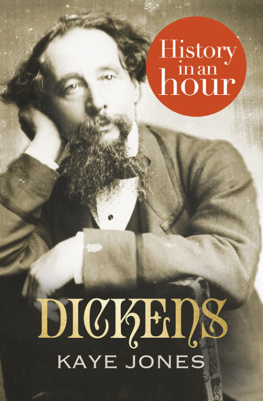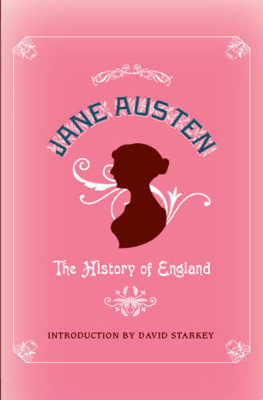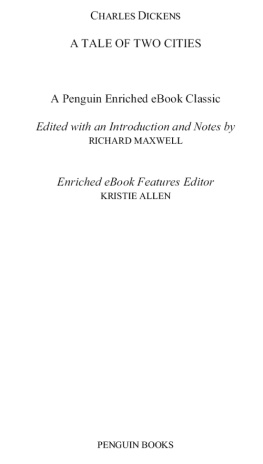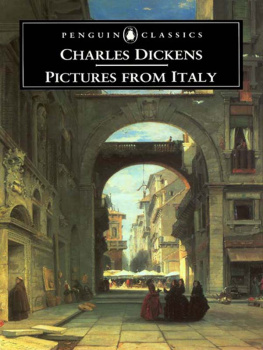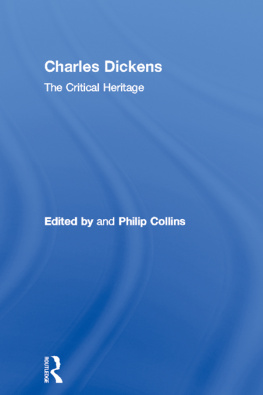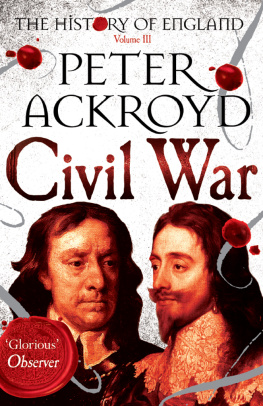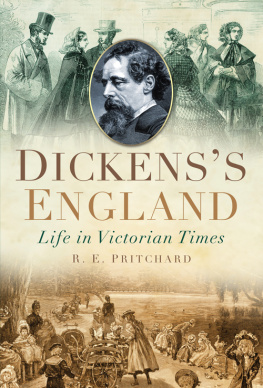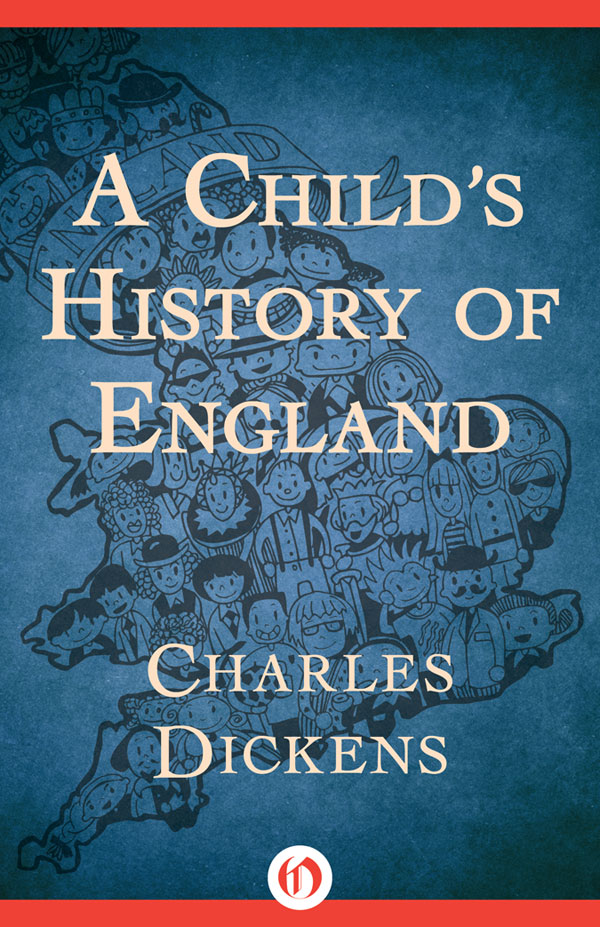A Childs History of England
Charles Dickens

CHAPTER I
ANCIENT ENGLAND AND THE ROMANS
IF YOU LOOK AT a Map of the World, you will see, in the left-hand upper corner of the Eastern Hemisphere, two Islands lying in the sea. They are England and Scotland, and Ireland. England and Scotland form the greater part of these Islands. Ireland is the next in size. The little neighbouring islands, which are so small upon the Map as to be mere dots, are chiefly little bits of Scotlandbroken off, I dare say, in the course of a great length of time, by the power of the restless water.
In the old days, a long, long while ago, before Our Saviour was born on earth and lay asleep in a manger, these Islands were in the same place, and the stormy sea roared round them, just as it roars now. But the sea was not alive, then, with great ships and brave sailors, sailing to and from all parts of the world. It was very lonely. The Islands lay solitary, in the great expanse of water. The foaming waves dashed against their cliffs, and the bleak winds blew over their forests; but the winds and waves brought no adventurers to land upon the Islands, and the savage Islanders knew nothing of the rest of the world, and the rest of the world knew nothing of them.
It is supposed that the Phnicians, who were an ancient people, famous for carrying on trade, came in ships to these Islands, and found that they produced tin and lead; both very useful things, as you know, and both produced to this very hour upon the sea-coast. The most celebrated tin mines in Cornwall are, still, close to the sea. One of them, which I have seen, is so close to it that it is hollowed out underneath the ocean; and the miners say, that in stormy weather, when they are at work down in that deep place, they can hear the noise of the waves thundering above their heads. So, the Phnicians, coasting about the Islands, would come, without much difficulty, to where the tin and lead were.
The Phnicians traded with the Islanders for these metals, and gave the Islanders some other useful things in exchange. The Islanders were, at first, poor savages, going almost naked, or only dressed in the rough skins of beasts, and staining their bodies, as other savages do, with coloured earths and the juices of plants. But the Phnicians, sailing over to the opposite coasts of France and Belgium, and saying to the people there, We have been to those white cliffs across the water, which you can see in fine weather, and from that country, which is called BRITAIN , we bring this tin and lead, tempted some of the French and Belgians to come over also. These people settled themselves on the south coast of England, which is now called Kent; and, although they were a rough people too, they taught the savage Britons some useful arts, and improved that part of the Islands. It is probable that other people came over from Spain to Ireland, and settled there.
Thus, by little and little, strangers became mixed with the Islanders, and the savage Britons grew into a wild, bold people; almost savage, still, especially in the interior of the country away from the sea where the foreign settlers seldom went; but hardy, brave, and strong.
The whole country was covered with forests, and swamps. The greater part of it was very misty and cold. There were no roads, no bridges, no streets, no houses that you would think deserving of the name. A town was nothing but a collection of straw-covered huts, hidden in a thick wood, with a ditch all round, and a low wall, made of mud, or the trunks of trees placed one upon another. The people planted little or no corn, but lived upon the flesh of their flocks and cattle. They made no coins, but used metal rings for money. They were clever in basket-work, as savage people often are; and they could make a coarse kind of cloth, and some very bad earthenware. But in building fortresses they were much more clever.
They made boats of basket-work, covered with the skins of animals, but seldom, if ever, ventured far from the shore. They made swords, of copper mixed with tin; but, these swords were of an awkward shape, and so soft that a heavy blow would bend one. They made light shields, short pointed daggers, and spearswhich they jerked back after they had thrown them at an enemy, by a long strip of leather fastened to the stem. The butt-end was a rattle, to frighten an enemys horse. The ancient Britons, being divided into as many as thirty or forty tribes, each commanded by its own little king, were constantly fighting with one another, as savage people usually do; and they always fought with these weapons.
They were very fond of horses. The standard of Kent was the picture of a white horse. They could break them in and manage them wonderfully well. Indeed, the horses (of which they had an abundance, though they were rather small) were so well taught in those days, that they can scarcely be said to have improved since; though the men are so much wiser. They understood, and obeyed, every word of command; and would stand still by themselves, in all the din and noise of battle, while their masters went to fight on foot. The Britons could not have succeeded in their most remarkable art, without the aid of these sensible and trusty animals. The art I mean, is the construction and management of war-chariots or cars, for which they have ever been celebrated in history. Each of the best sort of these chariots, not quite breast high in front, and open at the back, contained one man to drive, and two or three others to fightall standing up. The horses who drew them were so well trained, that they would tear, at full gallop, over the most stony ways, and even through the woods; dashing down their masters enemies beneath their hoofs, and cutting them to pieces with the blades of swords, or scythes, which were fastened to the wheels, and stretched out beyond the car on each side, for that cruel purpose. In a moment, while at full speed, the horses would stop, at the drivers command. The men within would leap out, deal blows about them with their swords like hail, leap on the horses, on the pole, spring back into the chariots anyhow; and, as soon as they were safe, the horses tore away again.
The Britons had a strange and terrible religion, called the Religion of the Druids. It seems to have been brought over, in very early times indeed, from the opposite country of France, anciently called Gaul, and to have mixed up the worship of the Serpent, and of the Sun and Moon, with the worship of some of the Heathen Gods and Goddesses. Most of its ceremonies were kept secret by the priests, the Druids, who pretended to be enchanters, and who carried magicians wands, and wore, each of them, about his neck, what he told the ignorant people was a Serpents egg in a golden case. But it is certain that the Druidical ceremonies included the sacrifice of human victims, the torture of some suspected criminals, and, on particular occasions, even the burning alive, in immense wicker cages, of a number of men and animals together. The Druid Priests had some kind of veneration for the Oak, and for the mistletoethe same plant that we hang up in houses at Christmas Time nowwhen its white berries grew upon the Oak. They met together in dark woods, which they called Sacred Groves; and there they instructed, in their mysterious arts, young men who came to them as pupils, and who sometimes stayed with them as long as twenty years.
These Druids built great Temples and altars, open to the sky, fragments of some of which are yet remaining. Stonehenge, on Salisbury Plain, in Wiltshire, is the most extraordinary of these. Three curious stones, called Kits Coty House, on Bluebell Hill, near Maidstone, in Kent, form another. We know, from examination of the great blocks of which such buildings are made, that they could not have been raised without the aid of some ingenious machines, which are common now, but which the ancient Britons certainly did not use in making their own uncomfortable houses. I should not wonder if the Druids, and their pupils who stayed with them twenty years, knowing more than the rest of the Britons, kept the people out of sight while they made these buildings, and then pretended that they built them by magic. Perhaps they had a hand in the fortresses too; at all events, as they were very powerful, and very much believed in, and as they made and executed the laws, and paid no taxes, I dont wonder that they liked their trade. And, as they persuaded the people the more Druids there were, the better off the people would be, I dont wonder that there were a good many of them. But it is pleasant to think that there are no Druids, now , who go on in that way, and pretend to carry Enchanters Wands and Serpents Eggsand of course there is nothing of the kind, anywhere.




